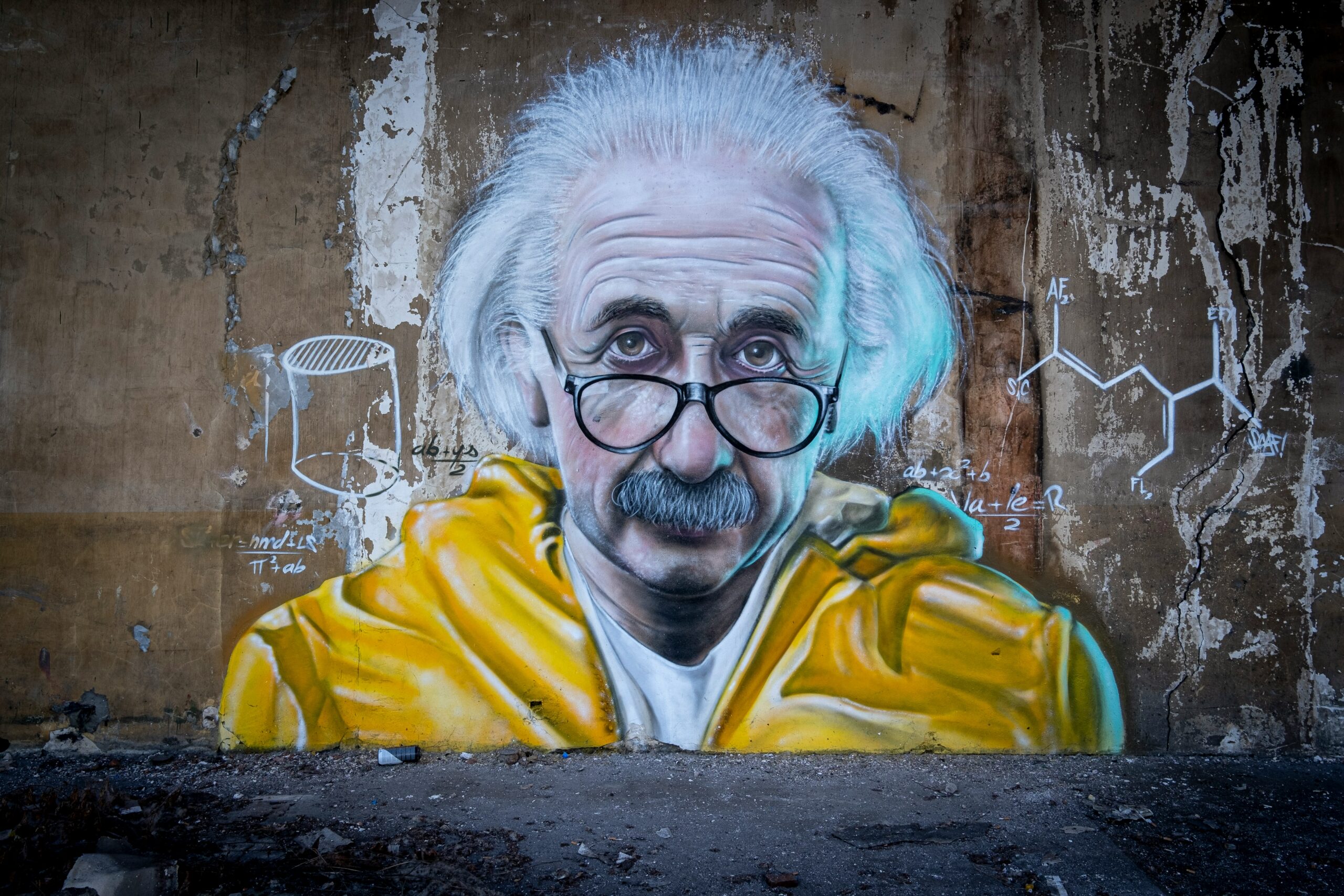They Said Einstein Was ‘Useless’… Until THIS Happened

Albert Einstein’s name is now a symbol of genius and curiosity. But, his journey started with doubts, struggles, and years of rejection. Many people called him a slow learner and doubted he’d ever amount to anything. This is the real story behind “They Said Einstein Was ‘Useless’… Until THIS Happened”. Let’s look at how Einstein’s complicated childhood, persistence, and personal integrity set him apart, and why turning down power was as important as his biggest scientific discoveries.
Early Life and Education Struggles
Childhood in Ulm, Germany
Albert Einstein was born on March 14, 1879, in Ulm, Germany. Unlike most children, he started speaking late and didn’t fit in. Some parents and teachers saw him as a slow learner or a late speaker. Most of his teachers called him average or weak—hardly the labels you’d expect for the mind that would change physics forever.
His differences weren’t just academic. Einstein questioned everything, which often set him apart from other kids. If he didn’t understand a lesson, he didn’t try to memorize it like others—he chased the core concept instead. This approach left him behind in the rigid school system.
Unique Learning Style: Curiosity Over Rote Learning
Einstein’s childhood can teach us something about the value of curiosity in learning. He had a habit of asking “why” and “how” instead of simply following instructions. In a world that rewarded memorization, his creative streak seemed more like a flaw than a gift.
- Curiosity-driven learning
- Avoided rote memorization
- Viewed as underperforming by teachers
Later, this “weakness” would become his strongest asset. To learn more about Einstein’s early years and how his unique approach shaped him, check out The Early Years – in Einstein.
Transition to Swiss Education System
Einstein hated the strict discipline of the German school system. In his search for a freer-minded approach to education, his family moved to Switzerland. He aimed to study Physics and Mathematics at Zurich Polytechnic College.
Einstein aced his Math and Physics entrance exams with ease, but struggled and failed in other subjects, such as Geology, Literature, and Politics. The professors at Zurich were impressed with his science answers. They asked who had taught him. His answer? He taught himself.
“If you want admission, Physics and Math are not enough. Go back, study the rest, and try again.”
So, Einstein put in another year of work before he finally got in. But even at college, his love for self-study was stronger than the urge to please professors. He found lectures boring and refused to chase after teachers for approval.
Career Struggles and Social Challenges
Graduation and Job Hunting Woes
In 1900, Einstein graduated. You’d expect a new physics graduate to have plenty of job offers, but not for him. His professors refused to back him. At that time, professor recommendations were everything, and Einstein had none.
Einstein watched as his peers, many less talented, landed solid jobs simply because they had the right support.
Repeated Job Rejections Across Germany and Switzerland
Rejected again and again, Einstein tried universities, schools, and research labs in both Germany and Switzerland. Every application was met with a form letter: “We regret we cannot hire you.” Even face-to-face meetings brought no luck.
He wrote about these struggles in his letters and diaries. Frustration and hurt came through clearly.
“It feels like the world has no need for me. Every door is closed…”
He confessed to his girlfriend, Mileva, that he felt like a useless man, living in a world that only valued those who fit the mold.
Personal Life and Financial Pressures
Jobless, Einstein couldn’t afford to marry Mileva, even as financial pressures mounted. He clung to his standards, refusing to accept any jobs unrelated to science.
Key personal events during this tough period:
- Appeal after appeal for academic positions
- Rising debt and emotional strain with Mileva
- Making a living as a private tutor, teaching Math and Physics to school kids
Turning Point: Patent Office Job
A friend finally suggested that Einstein try an examiner job at the Bern Patent Office. It was a low-level government position and did not require much experience. Still, it was a start—and in 1902, he got the job.
The Patent Office role meant reviewing inventions and patent applications, often repetitive and dull. However, it offered him security and a regular paycheck. Most of all, it gave him free time. Nights and weekends were his own, and he put them to use.
This was a critical pivot in Einstein’s path. Without this stable footing, the world might never have heard of his most revolutionary work.
For a broader look at Einstein’s career paths and challenges, see Albert Einstein | Biography, Education, Discoveries, & Facts.
Breakthrough in Scientific Research
Balancing Job and Research
The nine-to-five job at the Patent Office turned out to be a hidden blessing. It gave Einstein the safety and structure he needed but left him the time to pursue his scientific interests. While others might have given up after so many blows, he was about to change science forever.
The Miracle Year: 1905 Papers
In 1905, Einstein published four papers that shook the scientific world:
- Special Relativity: Changed how we see space and time.
- Photoelectric Effect: Explained how light carries energy, laying the groundwork for quantum physics.
- Brownian Motion: Proved that atoms and molecules exist and move randomly.
- Mass-Energy Equivalence (E = mc²): Showed how mass and energy are two sides of the same coin.
There’s a reason 1905 is called Einstein’s “miracle year”. Four breakthroughs, each enough to build a career, but all from a man working as a patent clerk.
To read more about Einstein’s Nobel Prize and the impact of these discoveries, visit Albert Einstein – Biographical.
Recognition and Rising Fame
Einstein’s work brought him from unnoticed outsider to instant celebrity in the science world. The Photoelectric Effect paper, in particular, later earned him the Nobel Prize.
His discoveries changed physics. Special Relativity forced everyone to rethink time, space, and even reality itself.
Academic Acceptance and Later Life
Academic Job Offer and Status Shift
It took until 1909—nine years after his graduation—for Einstein to be offered an assistant professorship at the University of Zurich. The outsider finally became an insider.
Despite finally having what he once longed for, Einstein’s personality remained unchanged. He refused to chase status or bend to academic politics.
Complex Personality and Public Image
Einstein’s public reputation became a mix of caricature and respect. Some saw him as a scatterbrained professor with wild hair, lost in thought. Others recognized his serious political engagement.
In 1932, with the rise of Hitler, Einstein left Germany for good. As a Jewish scientist, he was in clear danger. He moved to the United States, soon joining Princeton as a professor.
Political Role and Israel Presidency Offer
After World War II, Einstein became a respected voice for the Jewish community and global peace. Yet, he was never a passionate supporter of strict Zionism.
In 1952, after Chaim Weizmann, the first President of Israel, died, Einstein was offered the presidency. Israel’s leaders saw him as a unifying symbol. The country’s UN ambassador sent him an emotional letter offering him citizenship and the presidency, with promises of complete academic freedom.
Einstein, age 73, turned the offer down.
“I am deeply moved by the offer, but also saddened and ashamed I cannot accept. I have neither the experience nor temperament to deal with people properly, and official responsibilities are outside my skills.”
He later explained to a newspaper that he didn’t want to find himself in situations where he’d have to support government policies that went against his conscience.
His stand came not just from practical sense, but because he always valued his personal integrity over power or fame.
To explore more about Einstein’s personal and political principles, see his detailed profile on Wikipedia.
Legacy Beyond Science
Einstein’s refusal of Israel’s highest office showed the world that his greatest strength wasn’t only scientific genius—but the ability to remain true to himself. He spent his final years contributing to science and supporting his community from his home in Princeton, New Jersey.
Key Lessons from Einstein’s Life
Perseverance Amidst Rejection
Einstein’s story is a reminder that repeated failure doesn’t spell doom. Don’t let others’ opinions become your reality. He kept going—with or without support—because he believed in his purpose.
Value of Independent Thinking
He showed that seeking to truly understand, rather than just memorize, sets the stage for innovation. His “weakness” in school became the force behind his success.
Staying True to One’s Principles
Einstein’s refusal of political power, even at its highest level, sent a clear message: Your values matter more than any temporary honor.
Embrace your own unique path. Refuse to give up, no matter how many doors close. Never trade your integrity for titles or approval.
Takeaway for Readers
Einstein’s life story proves heroes are made, not born. Even if the world calls you “useless,” keep asking big questions, trust your curiosity, and push forward. You never know what your persistence will create.
For more stories and insights, follow Zem TV on Facebook or Instagram, and see the rest of their inspiring videos.
Do you have a story of overcoming setbacks? Let us know your thoughts in the comments and share if Einstein’s journey inspired you!


![What Happens If You Leave Orbeez in Water Too Long? [Expert Answer + Tips]](https://yoursguider.com/wp-content/uploads/2025/06/steptodown.com416275-768x424.jpg)



